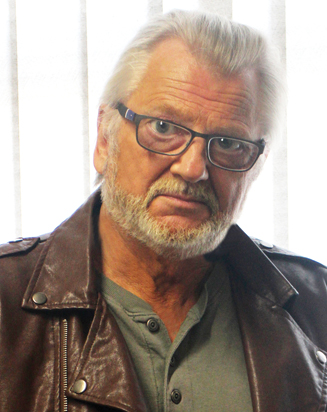The personal safety and conflict awareness trainer Steve Collins, of PS5, pictured, says that in cases of verbal confrontation, all you have to do is ASK.
Some people always say what they mean and others never do, like politicians for example. How many times have you had just the right words at the right time? However, how many times have the right words completely evaded you? But of course we can always think of all the things you could of said the next day.
As a natural follow on to my last two features in Professional Security Magazine [August and October print editions], this piece is all about Tactical Communications when faced with a verbal confrontation that could potentially turn physical. Verbal confrontation is a vocal expression of anger, often referred to as ‘Verbal Abuse’. Although this type of abuse can take many forms this piece only looks at Tactical Communications in the context of a face to face confrontation.
Some of the most common ways that people verbally abuse others.
– Foul Language and swearing
– Shouting, screaming and yelling
– Intimidating threats
– Personal insults
– Calling derogatory names
– Sexist and racialist comments
– Mocking and sarcastic comments
– Exceptionally negative criticism
– Twisting and manipulating words
This simple rule applies to everyone but especially to those who work in law enforcement and security.
A basic rule of communication is that to communicate powerfully and effectively you can use this simple mnemonic (memory aid): ‘When you need to be effective, just ‘ASK’
‘ASK’ stands for: Appropriate (use of tone and volume), Simplicity (of language) and ‘Klarity’ (of purpose). I know, I know my English teacher would be turning in his grave. Clarity with a K is a cheat but it fits and makes it all much easier to remember!
Appropriate use of tone and volume
The tone of our voice can either help or hinder our message. If we were to try and issue an order in a weak tone with no volume the effect would be dramatically reduced. Likewise, if we ask for voluntary compliance or assistance in too strong a tone the effectiveness may be also similarly diminished. Some people have personal power, an integrity and strength of character that is in everything they do.
Some people have humour and a sense of fun that seems to issue from them like a tangible force. But some people seem to have nothing and you can immediately dislike or distrust them. So what distinguishes good communication from poor communication and how can communication be optimised to help us in those situations where we need to be in control to gain compliance or assistance from others?
A sobering exercise is to record yourself speaking. When you play it back you’ll hate the sound of your own voice, but this is how sound to other people. Try saying a simple sentence … ”Please stop doing that.” The first thing to do is lower the tone of your voice and say the sentence slowly. First as a polite request and then as a forceful command. Try it in a sexy voice or as if you were talking to someone with learning difficulties or maybe a child. The more you are able to master your ability to use of volume and tone the more effective your communication skills will become.
Simplicity of language
We have all heard the expression KISS: “Keep it simple stupid”. There is an old American advertising expression that goes ‘never use a five-dollar word when a 50 cent word will do’. Although there are some $5 words sprinkled across this article I have tried to use 50c words wherever possible because they are easy to understand. It is exactly the same in good and effective Tactical Communications. Be easy to understand and express yourself in as few words as possible, to get your meaning across. Ask yourself a simple question… Is a long rambling explanation as to why you want something to stop more effective, than a sharp brisk STOP!?
Klarity of purpose
To communicate effectively in an angry verbal confrontation that could potentially turn very nasty. You need to know exactly what it is that you want to do, what it is that you want others to do and what needs to be done to get the result you desire. If you say YES, NO, STAND, SIT or OK the meaning is clear. However, if you were to say “I’m dreadfully sorry but if it’s not too much trouble I would be extremely grateful if you would desist from shouting at me, as it is extremely distressing”. Lots of $5 words when all you need is the 50 cents word STOP! Indeed it’s a prime of example where giving more information than you need can and will lead to a reduction in effectiveness!
It says in the Bible: “Ask, and ye shall receive.” Whether or not you are a religious person doesn’t really matter but as far as our ‘ASK’ is concerned it’s true. You will receive a positive outcome if you use ‘ASK’ and use it intelligently. When you use ‘ASK’ it’s important to be sure that the person you are communicating with can understand what you are saying and has the capability to comply.
So, is ‘ASK’ the answer to all your confrontation management prayers No, of course not. Effective communication is far more than a set of rules. It’s also about experience, compassion, attitude, ability, circumstances, external factors and a thousand other variables. But it begins when you make the decision to ‘ASK’.










